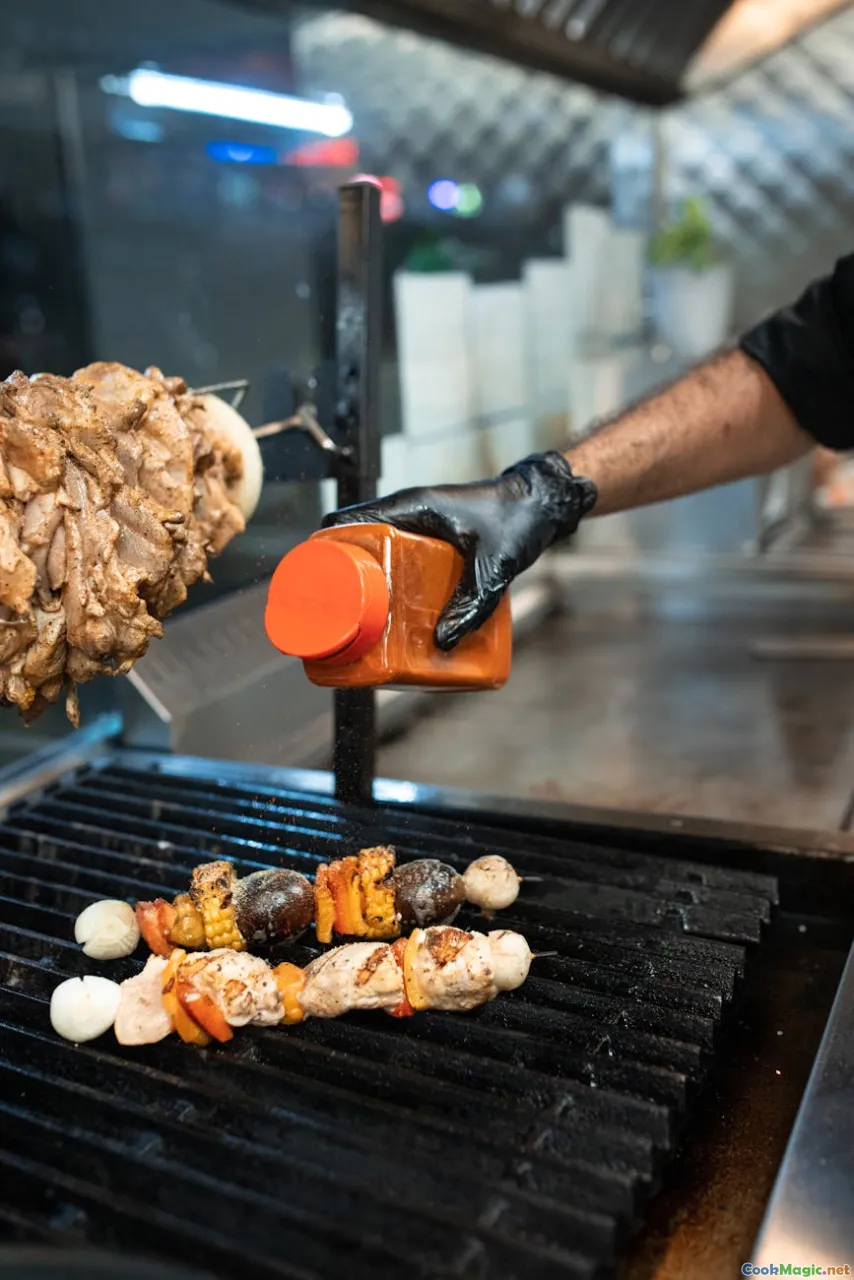Technique Tips for Grilling Greek Style Lamb
8 min read Discover expert tips to master authentic Greek-style lamb on the grill, capturing bold flavors, tender textures, and traditional aromas. April 20, 2025 09:00
Technique Tips for Grilling Greek Style Lamb
Imagine the smoky aroma wafting through a sun-drenched Greek courtyard, where the air is infused with the intoxicating scent of marinated lamb sizzling over open flames. Greek cuisine has long celebrated the art of grilling—an ancient tradition rooted in the Mediterranean's vibrant flavors and communal spirit. Mastering the technique of Greek-style lamb grilling isn’t merely about cooking meat; it’s about immersing yourself in a cultural ritual that connects history, nature, and family.
In this comprehensive guide, we’ll explore the secrets behind achieving perfectly grilled Greek lamb—tender, flavorful, and infused with authentic regional character. From selecting the right cut to mastering marinade techniques, controlling your fire, and presenting your masterpiece, these tips will elevate your outdoor cooking game to new heights.
The Cultural and Culinary Significance of Greek Lamb
Greek cuisine is a tapestry woven with centuries of history, geography, and tradition. Lamb holds a special place in Greek culinary culture, symbolizing festivity, community, and reverence for fresh, local ingredients. Whether served during religious festivals like Easter or family gatherings, Greek lamb recipes evoke a sense of warmth and belonging.
Historically, Greek shepherds relied on open-flame grilling to prepare their meat, a practice that continues today with passionate home chefs and professional cooks alike. The simplicity of the ingredients—olive oil, herbs, lemon—and the focus on technique turn a humble piece of meat into a sensory celebration.
Choosing the Perfect Lamb for Greek-Style Grilling
Cuts and Quality
The foundation of a delicious Greek-style grilled lamb lies in selecting the right cut. Traditionally, lamb shoulderorlamb chopsare favored for their balance of flavor and tenderness. The shoulder, with its marbling and connective tissue, benefits from slow marination and high heat, resulting in a juicy, melt-in-your-mouth experience.Lamb chops—specifically the rib or loin chops—are perfect for quick grilling, offering a crisp exterior and succulent interior. For a more substantial dish, kleftiko-style lamb leg or shanks can be cooked over indirect heat for hours, but for the typical Greek grill, smaller cuts work best.
Quality Matters
Always opt for high-quality, preferably grass-fed lamb from trusted butchers or local farms. Freshness impacts flavor profoundly, especially when relying on simple, traditional seasonings.
Marination and Flavoring: The Heart of Greek Grilling
The Classic Greek Marinade
Greek lamb marinades are a masterclass in balancing acidity, herbs, and oils. The traditional marinade includes:
- Olive oil: Extra virgin, robust, and fragrant.
- Lemon juice: Brightens and tenderizes.
- Garlic: Crushed or minced for depth.
- Herbs: Oregano, thyme, rosemary, and a hint of mint.
- Salt and pepper: To taste.
- Optional spices: Paprika or cumin for subtle warmth.
Marination Tips
- Duration: Marinate the lamb for at least 2 hours; overnight if possible, to deepen flavors.
- Technique: Use a non-reactive container or seal in a plastic bag, ensuring even coverage.
- Frequency: Turn the meat occasionally to ensure uniform absorption.
Additional Flavor Layers
For an authentic touch, add a splash of red wine or a sprinkle of crushed oregano during marination. Some cooks incorporate a touch of honey or Greek yogurt to enhance tenderness and add subtle sweetness.
Mastering the Grill: Fire and Technique
Preparing the Flames
Greek grilling often involves a charcoal or wood fire—preferably oak or fruit woods like lemon or orange wood for added aroma. Here’s how to get it right:
- Build a two-zone fire: One side with hot coals for direct heat, the other with cooler coals for indirect cooking.
- Ensure consistent heat: Wait until coals are ashed over and glowing before grilling.
- Maintain temperature: Aim for a steady 375-450°F (190-230°C) for perfect searing.
Grilling Technique
- Initial Sear: Place lamb on the hot side to develop a caramelized crust, about 2-3 minutes per side.
- Finish with indirect heat: Move the meat to the cooler side to cook through evenly.
- Use a meat thermometer: Aim for 135°F (57°C) for medium-rare, adjusting based on preference.
- Avoid over-flipping: Let the meat develop grill marks and crust before turning.
- Baste sparingly: Use extra marinade or olive oil during grilling for additional flavor.
Resting and Serving
Once off the grill, let the lamb rest for 5-10 minutes to allow juices to redistribute. Slice against the grain for maximum tenderness. Serve with traditional Greek accompaniments like tzatziki, lemon potatoes, or a fresh Greek salad.
Tips for Authenticity and Personal Touch
- Wood smoke: Incorporating fruit woods adds subtle sweetness and aroma.
- Herb freshness: Use freshly chopped herbs right before serving for vibrant flavor.
- Presentation: Arrange grilled lamb on a rustic platter, garnished with lemon wedges and sprigs of oregano.
- Shared experience: Invite friends and family to participate in the grilling process, echoing Greek communal traditions.
Personal Reflection and Final Thoughts
From my own experiences cooking Greek lamb over open flames in a small village in Crete, I’ve learned that the true magic lies in patience, respect for the ingredients, and a deep appreciation for tradition. The sizzle of the meat, the scent of herbs, and the sight of those beautiful grill marks evoke memories of warm Mediterranean evenings, laughter, and shared stories.
Mastering Greek-style lamb grilling is more than a culinary skill—it's a celebration of culture, history, and the simple joy of good food prepared with love. Whether you're hosting a summer barbecue or an intimate dinner, these technique tips will help you recreate the authentic flavors of Greece right in your backyard.
Happy grilling, and Kali orexi!









